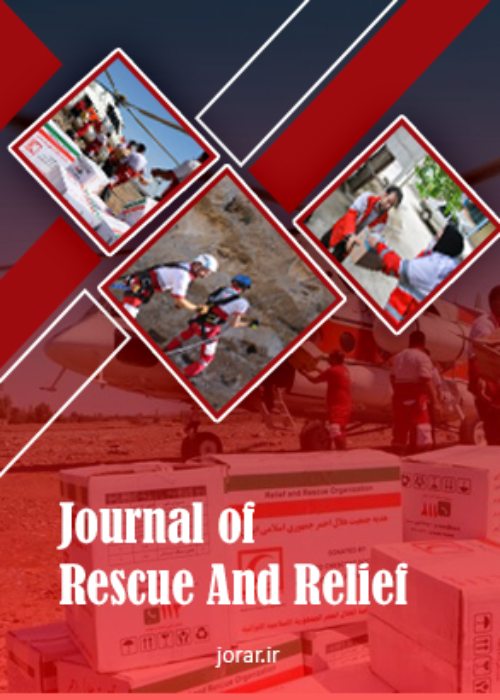Trust Building in Humanitarian Services Supply Network
Due to the increasing trend of natural and manmade disasters in the contemporary world, especially in Iran, as well as the variety and high number of disasters in recent years, the issue of managing the humanitarian services supply network has become very important. The purpose of this study is to design and evaluate the model of trust building in the humanitarian services supply network, considering the importance of building trust in these networks and theoretical poverty in this field.
For doing this study, three recent major disasters in Tehran province, Iran, (Plasco accident, city explosion and metro flood) were selected and had been studied and the trust building model in humanitarian service supply network is designed using Corbin and Strauss grounded theory version 2015 based on interviews with 8 humanitarian experts in that three disasters. Then, the relationships between the model components were investigated by Structural Equation Modeling with a researcher-made questionnaire distributed among 128 individuals participating in the above events.
The final model is designed in three phases of conditions, actions, and consequences based on grounded theory. Poor community structures and community management systems are a major obstacle to trust building and political power interventions, insufficient funding, uncertainty of the responsible person, unsuccessful performance, lack of coordination and cooperation of the responsible working groups, and lack of readiness are the main factors of distrust. The main components of the model are highly correlated and the components have significant relationships.
The research final model can solve the existing problems in Iran's humanitarian services supply network by building trust among organizations, members of the network and finally among the public. Building trust enhances intra-network collaboration, and achieves the success and goals of the relief network through establishing greater coordination and cohesion. The dominance of the political factors in the relief network is also a major obstacle to obtaining the needed information and making good cooperation by those present in the network and thus, the involvement of political actors in the humanitarian supply network should be prevented.
- حق عضویت دریافتی صرف حمایت از نشریات عضو و نگهداری، تکمیل و توسعه مگیران میشود.
- پرداخت حق اشتراک و دانلود مقالات اجازه بازنشر آن در سایر رسانههای چاپی و دیجیتال را به کاربر نمیدهد.


